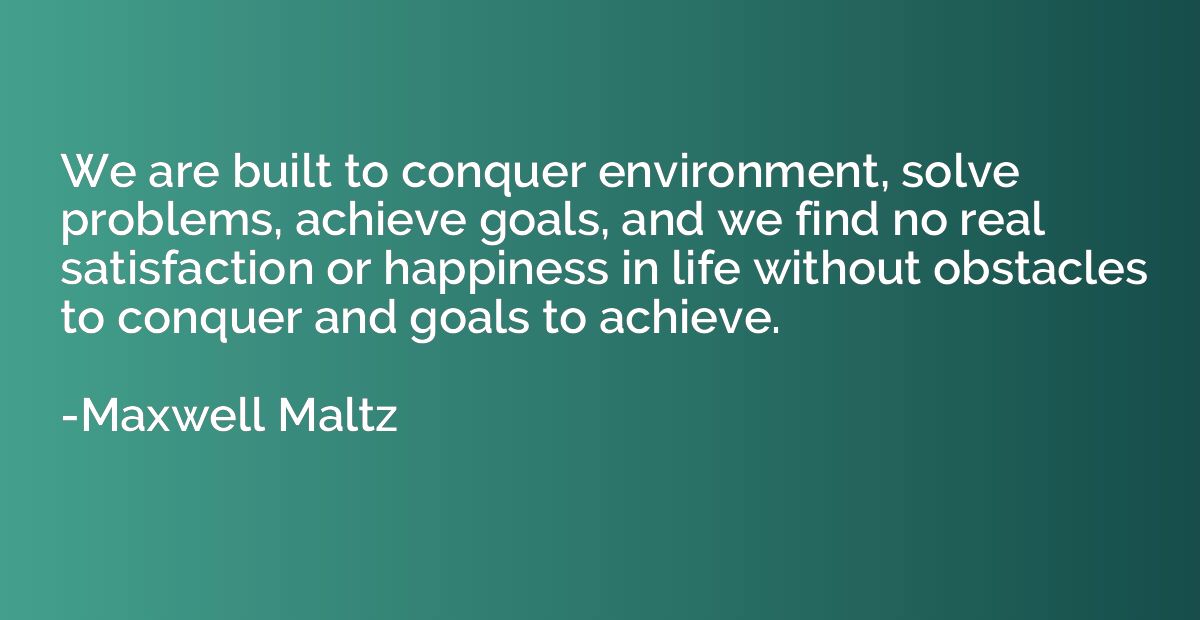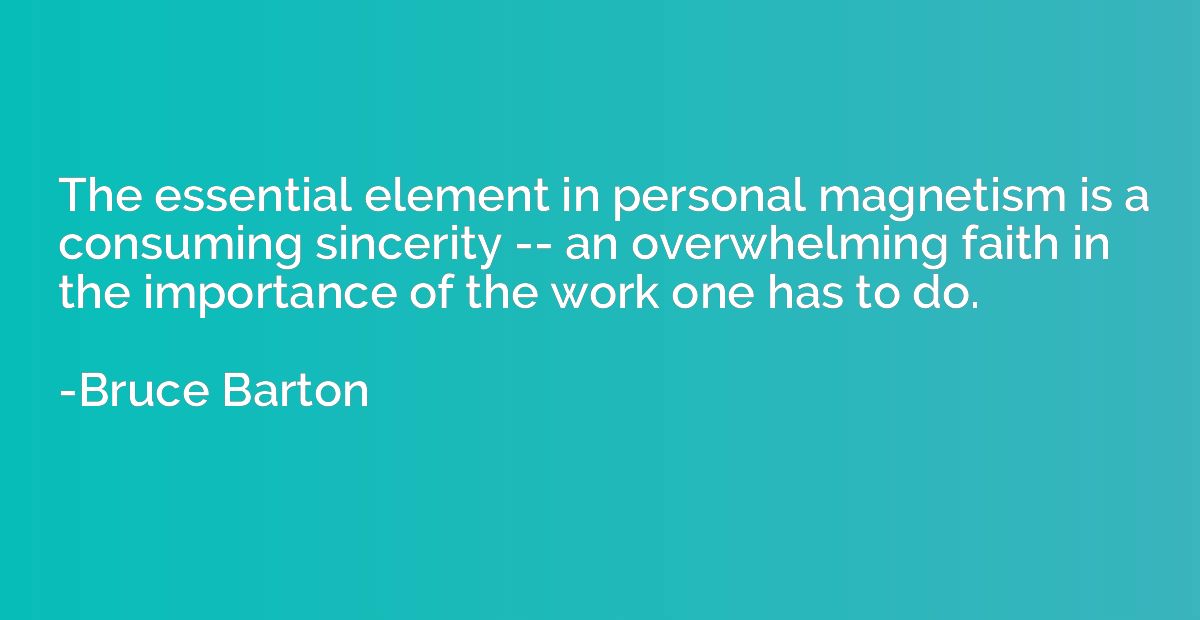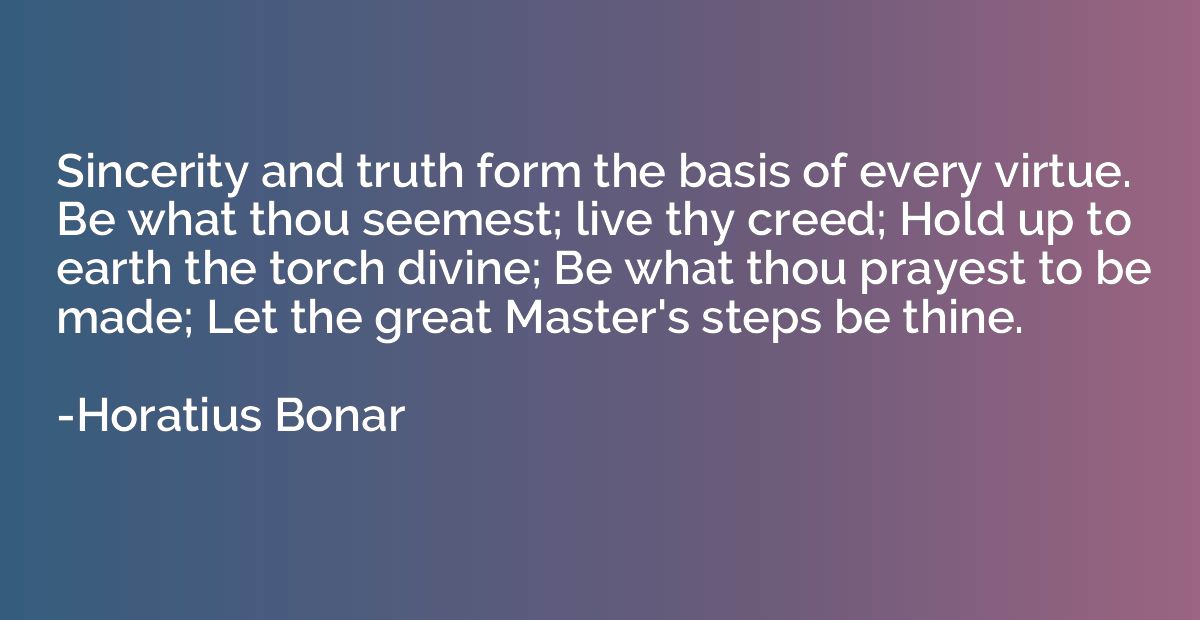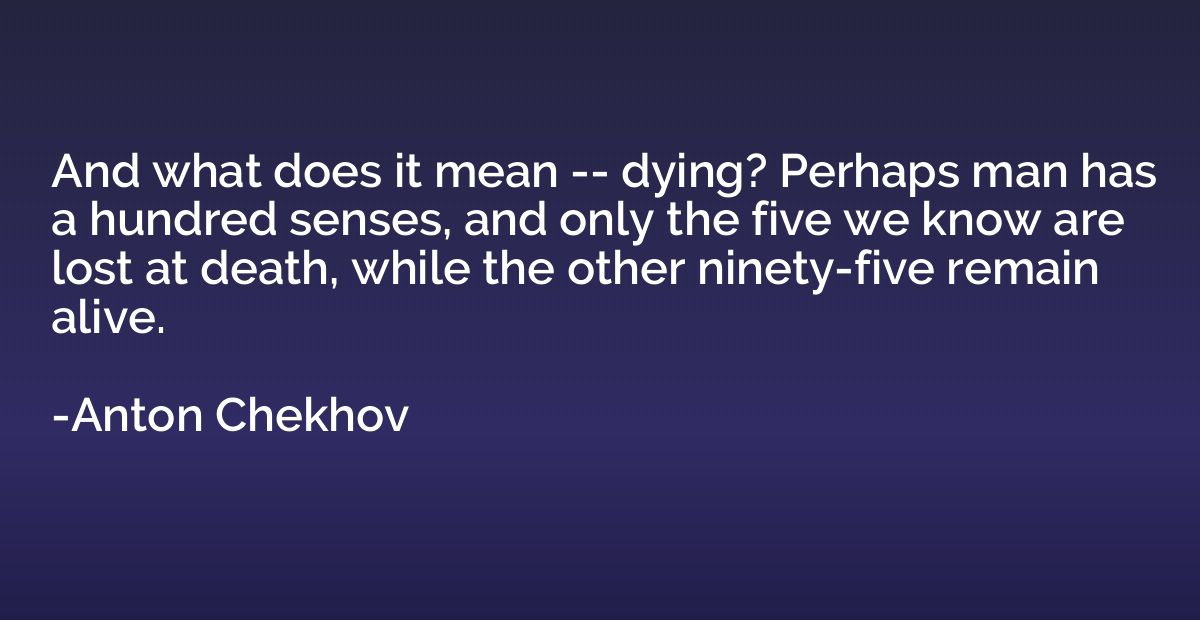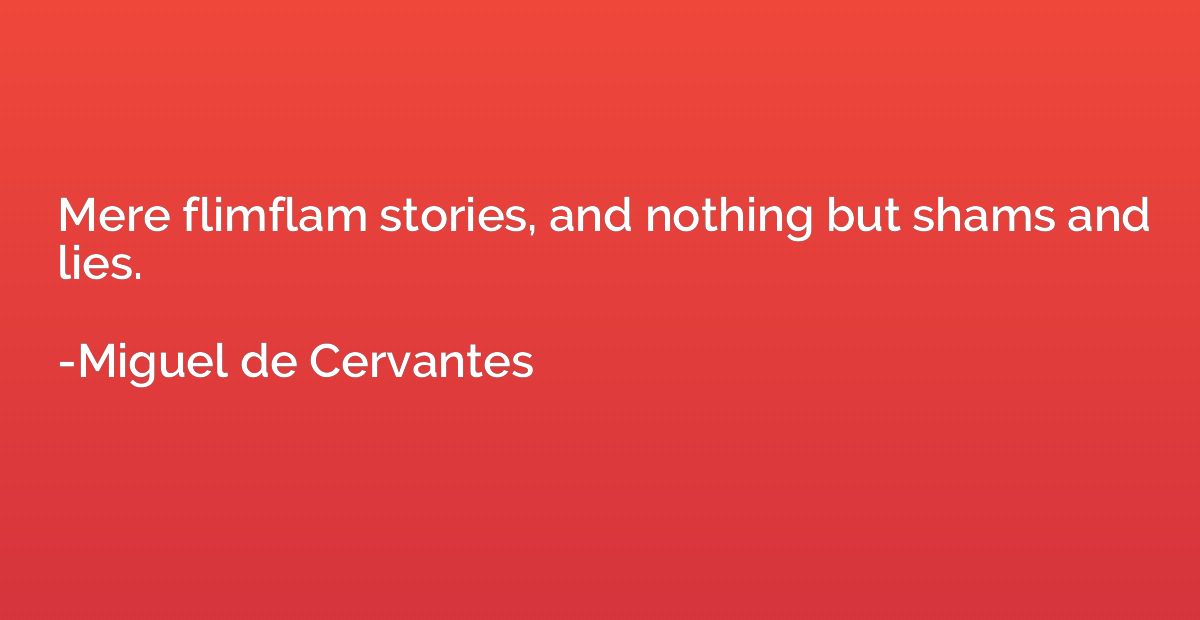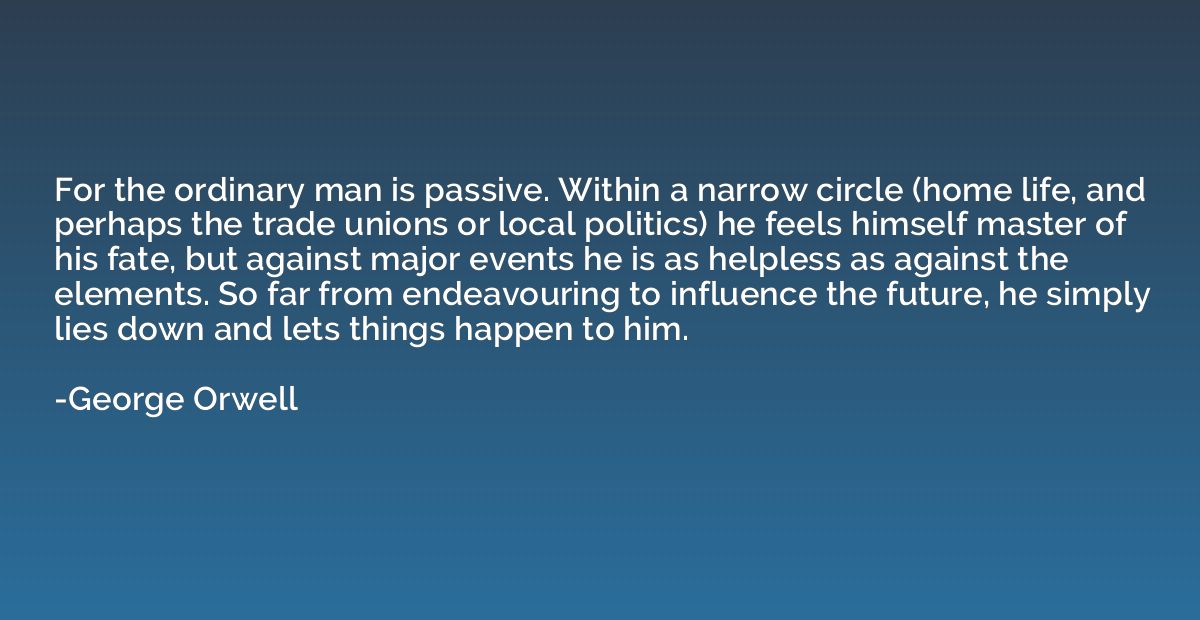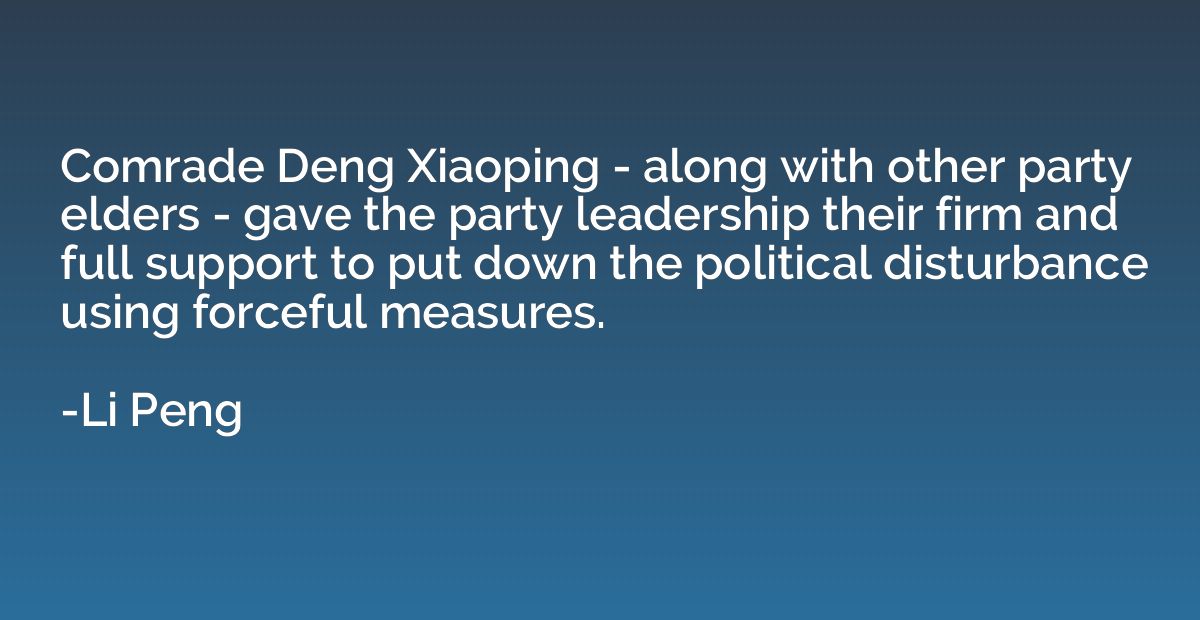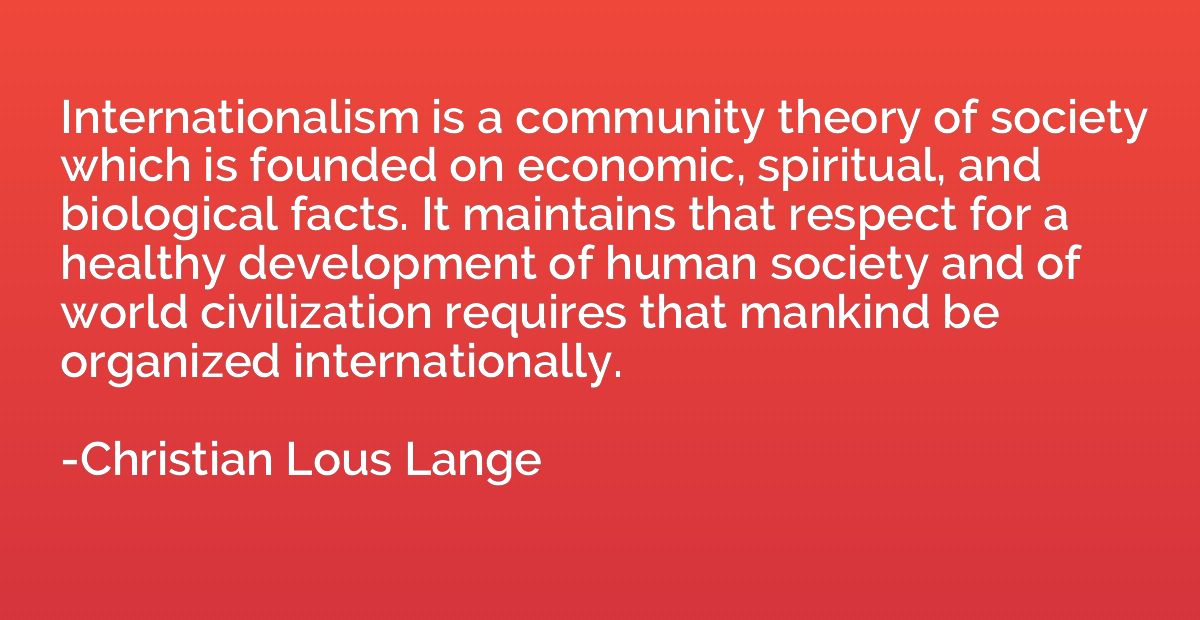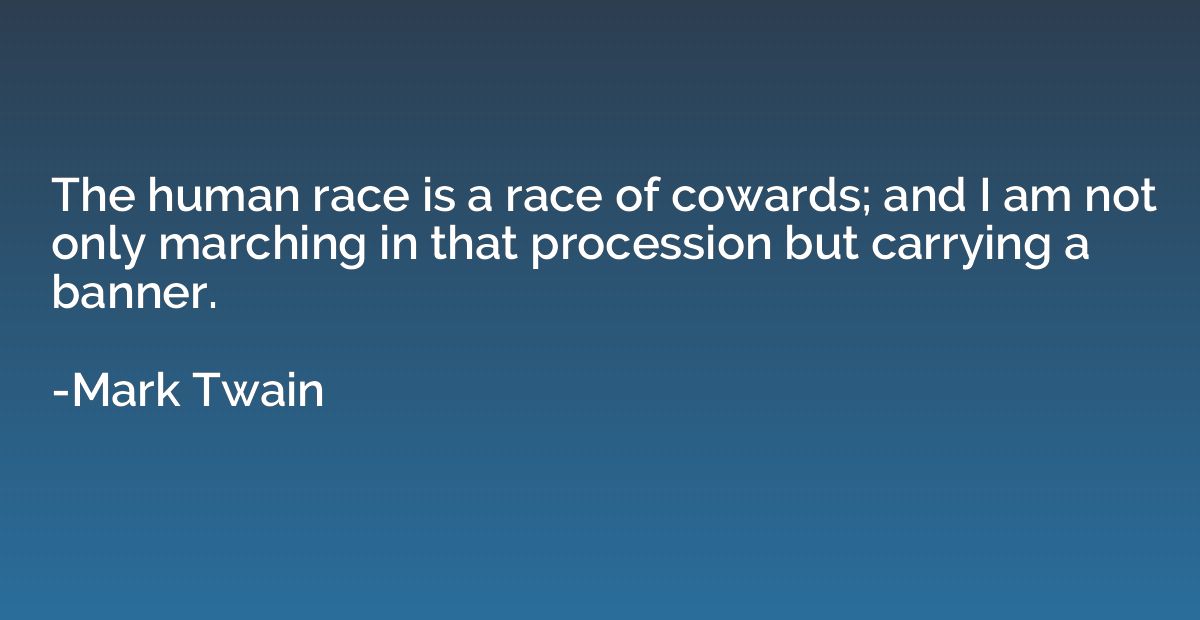Quote by Leo Tolstoy
The way to fame goes thorough the palaces, the way to happiness does through the markets, the way to virtue goes through the deserts.
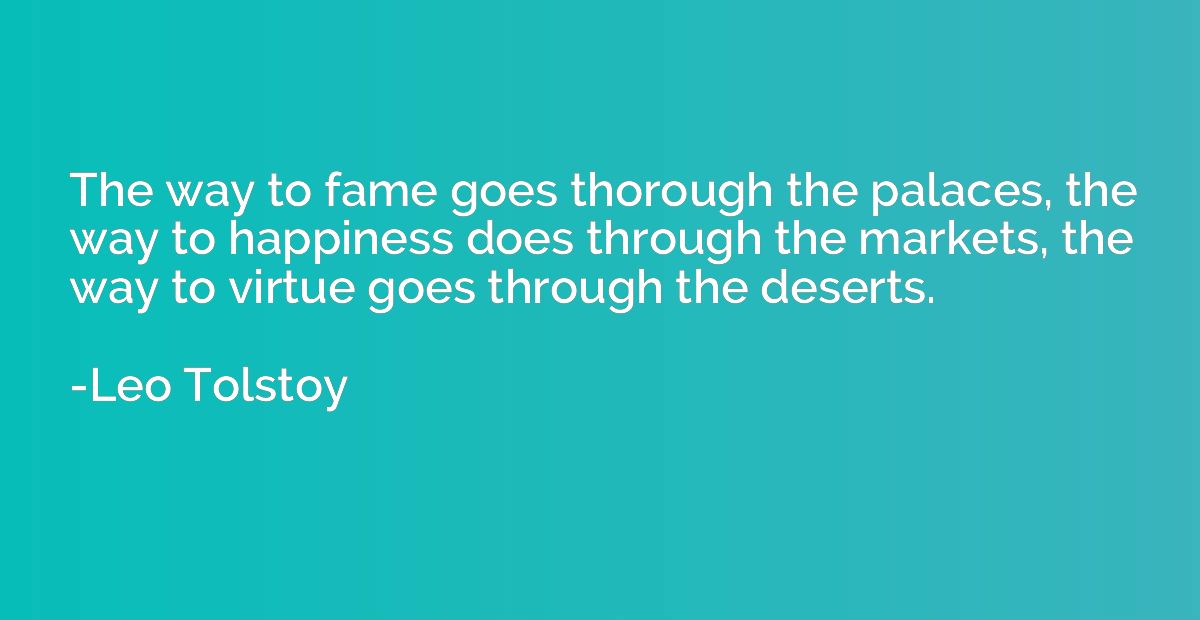
Summary
This quote suggests that various paths can lead to different types of success. The "way to fame" refers to the pursuit of recognition and accomplishment, which often involves seeking power and influence in high-ranking circles. The "way to happiness" implies finding contentment and joy through engaging with everyday life and ordinary pursuits, such as connecting with people in marketplaces. Finally, the "way to virtue" proposes that the path towards moral excellence and goodness is found in solitude and introspection, symbolized by the deserts. Ultimately, the quote highlights that success and fulfillment can be achieved through different routes and values.
By Leo Tolstoy



